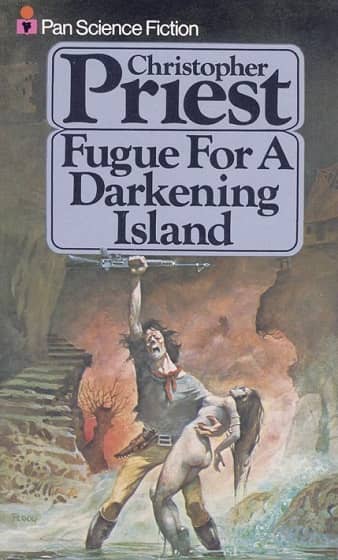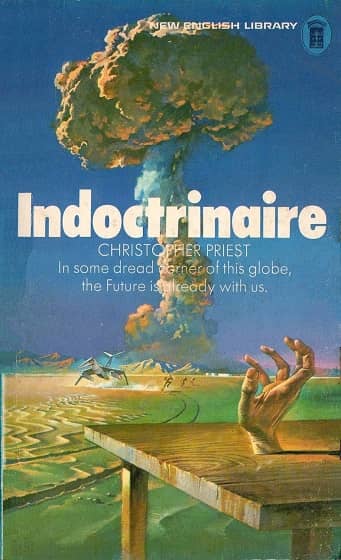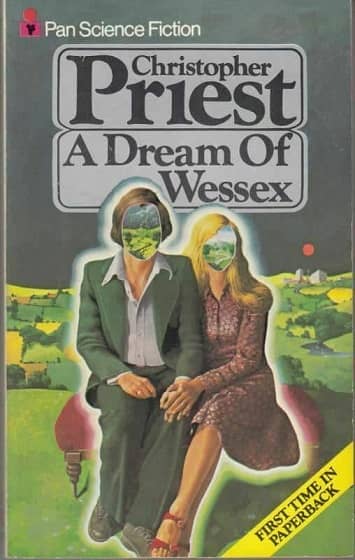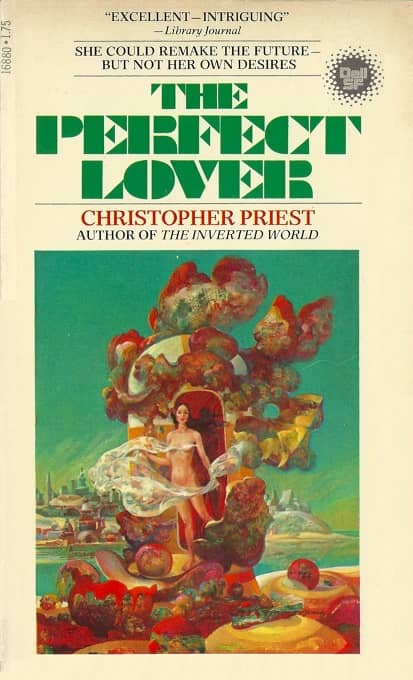Exploring a More Pleasant Future: A Dream of Wessex by Christopher Priest
 |
 |
 |
Covers by Mike Ploog, Bruce Pennington, and uncredited
I like Chris Priest’s writing a lot. “An Infinite Summer” is one of my favorite SF stories. The Inverted World was one of the first serials I ever read in an SF magazine (Galaxy, in 1975 or so), and it fairly blew me away. I read Darkening Island (Fugue for a Darkening Island) at just the right age to be impressed by its non-linear narrative structure.
But for some reason, maybe because his books don’t seem to get much push in the US, I haven’t been following him lately. Recently I read his first novel, Indoctrinaire, which had some good ideas but ultimately was pretty obviously a first novel, and no better than OK. I have just now read what I believe to be his fifth novel, A Dream of Wessex (US title The Perfect Lover), from 1977. This is a very interesting novel, and a pretty good read.
The basic idea is quite “Priestian,” a (very little) bit reminiscent of Indoctrinaire: in the near future of 1977 (1985), a research project is set up whereby a group of people sort of “pool” their unconsciousnesses and create a realistic world 150 years in the future. Ostensibly this is to explore what might be done to reach a more pleasant future. The dreamed future is set on “Wessex,” which is the western part of England after it has been separated from the mainland by earthquakes, with the new channel roughly along the path of the river Stour.
 |
 |
Cover by Walter Bachinsky
All of England is communist, and part of the Soviet sphere, while the US is Islamic. (The notion that this is a more pleasant future, or realistic, is one on which one’s mileage may vary.) The “dreamers” all have alter-egos in Wessex, and they return periodically to report. But one of them, David Harkman, has never returned. Another, Julia Stretton, goes looking for him, while she also worries because her abusive former lover has maneuvered his way onto the project.
Julia and David fall in love in Wessex, but all is threatened when Julia’s lover begins to change the parameters of the future world. The idea is a bit barmy, I think, but it’s appealingly solipsistic, as well. The idyllic scenery of Wessex is well-evoked, and the resolution is very nicely handled. A different, but very interesting, book.
This review originally appeared at SFF.Net. Rich’s website is Strange at Ecbatan. See all of Rich’s articles here.